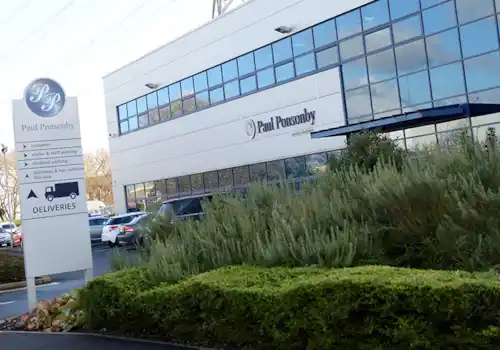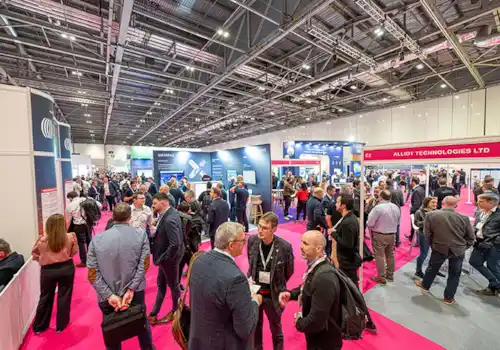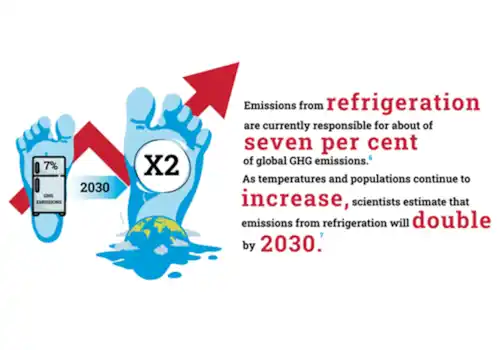22 October 2025
|
Iain Bevan, New Business Director – Residential at Daikin, urges heating and plumbing professionals to take advantage of the increasing business opportunity offered by heat pump installation and the different training paths that exist for breaking into the industry.
The UK heating industry stands at an unprecedented crossroads. Within the next three years, the sector must expand its qualified heat pump installer workforce by 900% to meet government targets of 600,000 annual installations by 2028. For heating and plumbing professionals, this represents both a significant challenge and perhaps the greatest commercial opportunity of their careers.
The transformation isn’t driven by policy alone. Rising energy costs, environmental awareness among homeowners, and the practical reality of Net Zero commitments have created genuine market demand for lowcarbon heating solutions. Not to mention that roughly 14% of UK greenhouse gas emissions comes from domestic heating, making residential properties a critical battleground in the fight against climate change.
Understanding the market dynamics
The heat pump installation target represents a twenty-fold increase from pre-2020 levels – a scale of expansion that would challenge any industry. However, several factors suggest this is both realistic and sustainable.
Energy security concerns continue to make homeowners increasingly receptive to heating systems that promise greater independence from fossil fuel markets. Simultaneously, improving heat pump technology and falling equipment costs are making these systems accessible to a broader range of properties and budgets.
The government has backed these market forces with substantial financial support. Training programmes now benefit from significant funding streams, removing traditional barriers that prevented heating professionals from acquiring new qualifications. This combination of market pull and policy push creates conditions unlike anything the industry has experienced in decades.
Leveraging existing skills
For established heating and plumbing professionals, heat pump installation doesn’t require starting from scratch. The core competencies that define successful heating engineers – understanding system design principles, managing complex installations, and maintaining customer relationships – translate directly to heat pump work. Experience with water circulation systems, pressure management, and system balancing provides the foundation for understanding heat pump hydraulics. Knowledge of control systems and electrical connections proves invaluable when integrating heat pumps with existing heating infrastructure. Perhaps most importantly, the ability to diagnose heating problems and explain technical concepts to customers remains central to heat pump service delivery.
The transition represents skill enhancement rather than career reinvention, adding expertise to an existing professional foundation.
Navigating training options
The heat pump training landscape has evolved dramatically over the past two years. Multiple pathways now exist, each designed to accommodate different learning preferences and business circumstances. Intensive bootcamp-style programmes offer rapid skill acquisition for professionals seeking quick market entry. The Heat Pump Bootcamp offered by Daikin for example, is completely free (fully government funded) and offers five days of expert-led training. These typically combine essential qualifications – including Water Regulations Assessment and Level 3 Heat Pump Installation Awards – with hands-on experience using operational equipment. The emphasis on practical application over theoretical study suits experienced heating professionals who prefer learning by doing.
Modular approaches allow gradual skill development while maintaining existing business operations. These programmes recognise that established professionals cannot simply abandon their customer base for weeks of training. Instead, they structure learning into manageable blocks that can be completed alongside ongoing work commitments.
Effective training programmes now extend beyond basic product familiarisation. Look for courses that provide comprehensive business development support, recognising that technical knowledge alone doesn’t guarantee commercial success.
Lead generation systems help connect newly qualified installers with potential customers, addressing one of the biggest challenges facing professionals entering new market segments. Marketing support, including co-branded materials and digital presence enhancement, helps establish credibility in an unfamiliar field.
Financial incentive programmes provide tangible rewards for early adopters while supporting business cash flow during the transition period. These might include installation bonuses, performance-based rewards, or preferential pricing on equipment and certification.
The progression pathway should be clear and achievable. Initial certification typically enables immediate installation work under manufacturer guidance. After completing supervised installations, access to installer directories and lead management platforms follows naturally. Advanced certifications unlock enhanced support levels and premium pricing opportunities.
Hybrid system training deserves particular consideration for gas-qualified engineers. These systems combine high-efficiency air-to-water heat pumps with traditional gas boilers, intelligently selecting the most efficient heat source based on external conditions and system demand. For properties with existing gas infrastructure, hybrid systems offer improved efficiency and reduced emissions without requiring complete heating system replacement.
This technology provides a natural bridge for gas engineers entering the heat pump market. The systems integrate with familiar boiler technology while introducing renewable heating concepts in a manageable context. Installation often requires minimal disruption to existing pipework and radiator systems, making the proposition attractive to both installers and homeowners.
Technical support infrastructure
Perhaps the most critical aspect of any training programme is ongoing technical support. Priority access to specialist helpdesks ensures that complex installation challenges don’t compromise customer satisfaction or professional reputation.
Expert commissioning assistance proves particularly valuable during early installations. Manufacturer support during system startup and optimisation builds confidence while ensuring proper system operation. Free commissioning support for initial projects removes financial risk while providing valuable learning opportunities.
Manufacturers like Daikin have developed sophisticated training ecosystems extending far beyond basic product orientation. The Sustainable Home Network1 offers structured learning pathways allowing gradual skill development while maintaining existing business operations.
Effective programmes combine theoretical learning with practical experience using operational heat pump equipment. This approach proves essential when mastering the complexities of different technologies across varying property types and electrical configurations. Seek programmes offering discounted professional certifications, including MCS accreditation, eliminating financial obstacles to recognised renewable energy qualifications.
For those smaller businesses that have been held back by the cost of MCS certification, HPIN Direct2, launched by EDF Heat Pumps in partnership with Daikin UK, makes heat pump installation accessible and hassle-free3. Meanwhile, comprehensive warranty coverage demonstrates manufacturer commitment to both product quality and installer support, important factors when building customer relationships in a new market segment.
Business considerations
The financial reality of heat pump installation work favours early market entrants. Current skills shortages enable qualified installers to command premium pricing while the market remains undersupplied. As more professionals enter the sector, competitive pressures will inevitably increase, making early positioning advantageous.
Modern training programmes accommodate existing business operations rather than requiring immediate wholesale changes. You can diversify your service offering strategically while maintaining established revenue streams. This approach reduces business risk while building expertise in a growing market segment.
The integration potential with existing services shouldn’t be overlooked. Heat pump installations often require associated electrical work, system upgrades, and ongoing maintenance – all areas where experienced heating professionals possess relevant skills.
Looking Forward
The UK’s heating transformation represents more than technological change – it’s a fundamental shift in how we think about residential energy systems. Professionals who position themselves effectively now will benefit from sustained business growth as market demand continues expanding.
The window of opportunity for establishing market position remains wide open. Training infrastructure is now mature, government support remains strong, and customer awareness continues growing.
For heating and plumbing professionals considering their next career move, the question isn’t whether the heat pump market will develop – it’s how quickly you can position yourself to benefit from this unprecedented opportunity.
The transformation is happening with or without you. The choice is whether to lead it or follow from behind.
Source
2 www.daikin.co.uk/en_gb/installer/the-heatpump-revolution.html
3 The scheme allows qualified installers to fit Daikin heat pumps without holding their own MCS certification, while still giving customers access to Boiler Upgrade Scheme funding of up to £7,500. EDF takes care of the system design, commissioning and certification, removing the administrative burden. With straightforward bundle pricing and no subscription fees, HPIN Direct offers a low-risk way for businesses to enter the growing heat pump market and build experience.








